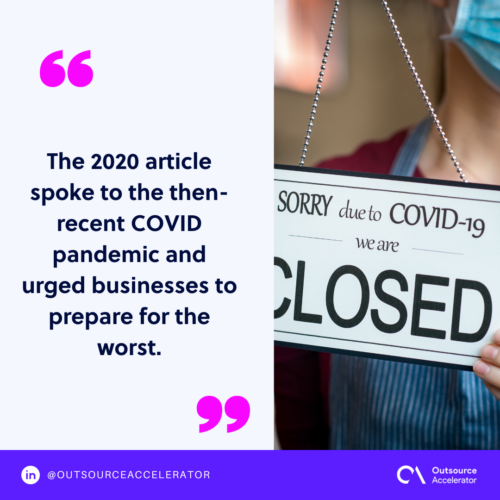Gone Global is bringing the future of employment to your inbox doorstep. This week we cover camlesThis week we are updating your vocab with a new buzzword. We’ll also delve into the silver lining of layoffs. This issue won’t be a bore. Swear.
Time for camels, not unicorns
Unicorns are white, clean, and dainty. They prance – and are pretty.
Camels are rugged, thickset, and leathery tough. Camels don’t prance. They stoically cross deserts and are comfortable in unmerciful terrain.
In October 2020, a Harvard Business Review artcile urged businesses to think more like camels than unicorns.
“Camels are able to survive for long periods without sustenance, withstand the scorching desert heat, and adapt to extreme variations in climate. They survive and thrive in some of Earth’s harshest regions.”
The 2020 article spoke to the then-recent COVID pandemic and urged businesses to prepare for the worst.
However, despite the pandemic, times didn’t get tough. There was no need for camels; the unicorns continued prancing. The bountiful global stimulus pumped trillions of dollars into the economy, sharemarkets soared, employees all retired, crypto reached the moon, and startup unicorns multiplied like rabbits. Uni-rabbits!
Despite a gnarly pandemic, the complete absence of hard times gave all the poncy unicorns a false sense of security. There was no need to be tough in a world without threats.
Businesses were run increasingly on speculation and growth, instead of cash flow and profit. Employees demanded more money and less work – and they got it. The gravy train was doing the rounds.
Inevitably, people got soft, companies got fragile, and the economy weakened – like the footballer (soccer) crying foul – for nothing.
The gravy train would never stop. They thought. Until it did.
Eventually, after rising interest rates and a few implosions – investors got hurt, valuations got a haircut, and the dial on risk-exposure was turned down.
Then, suddenly, the funds dried up, the good times stopped, and people realized they were all swimming naked as the tide went out.
It turns out that a lot of these unicorns were not as they appeared. Celebrated unicorns were valued based on astronomical multiples of 100x revenues. This means a company only needed $10m revenues, for the $1 billion valuation – and profits were nowhere to be seen.
The music eventually stops
Now, the mystical startup-land is littered with down-round valuations and distressed businesses. Startups are scrambling to resemble normal companies – with positive cash flow, budgets, and… profit.
Many companies will fail to make the transition.
The fragility of startup-land has allowed feeble cash-hungry companies to prosper – which is all well and good, until there is no money.
Only a few companies will manage the transition. The companies that will make it out the other side will be battle-scarred, ruddy, and hardened. They’ll start to look more like a camel than a unicorn.
The question for your business
Is your business built like a unicorn, or a camel?


 Independent
Independent





















